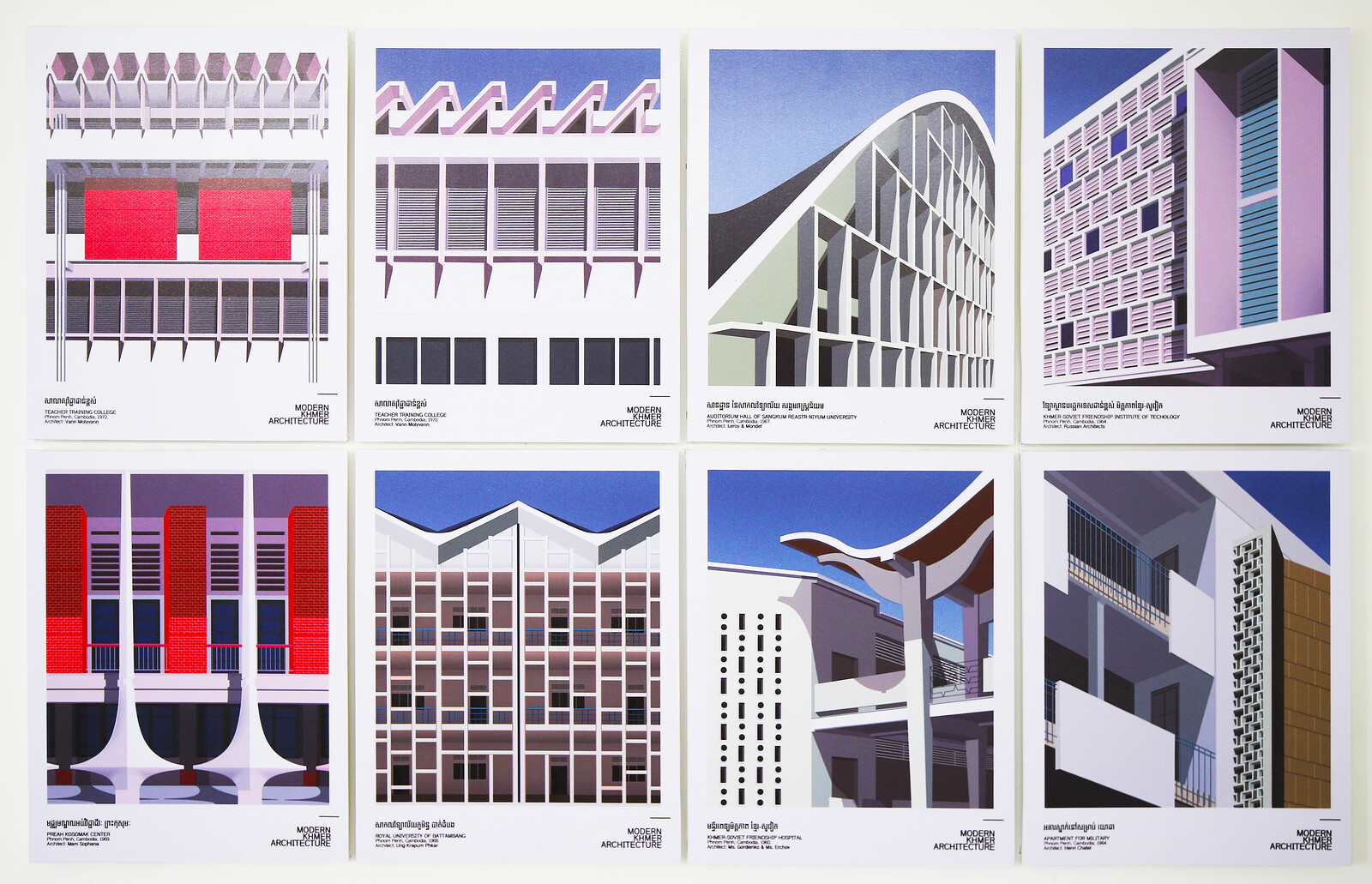Exhibition in Berlin
September 11–October 24, 2021
Karl-Marx-Allee 1
10178 Berlin
Germany
With the attainment of independence in the mid-20th century, the appearance of many cities in Southeast Asia changed. Hand in hand with the task of constituting a nation went the desire for a symbolic new beginning in architecture and urban planning. International modernism not only offered an aesthetic programme that reflected expectations of progress and prosperity, but also served as a means of emancipation from the colonial powers. With their knowledge of climatic building requirements in tropical regions and cultural specifics, local modernisms were created that shaped the image of the cities for years to come.
Today, rapid urbanisation processes, often politically motivated reassessments of local architectural history, and new usage requirements place the architectural legacy of this era of new beginnings under threat of demolishment or destruction through excessive conversions. Against this backdrop, the significance of postcolonial architecture in the region is increasingly thematized. This is accompanied by critiques of the widespread interpretation of modernism as an originally Western movement.
In Germany, the buildings of Southeast Asian modernism and the discussions about their preservation are barely known. Contested Modernities brings the Southeast Asian discourse to Berlin, where astonishingly similar discussions are currently being held about the architectural heritage of modernism.
Contested Modernities is part of the long-term programme Encounters with Southeast Asian Modernism, which launched in 2019 with exhibitions and events in Phnom Penh, Jakarta, Yangon, and Singapore. Five curatorial teams in the respective cities dealt in different ways with the significance of local architectural modernism. The exhibition brings together these contributions in Berlin. Documentary projects, interviews and artistic research works provide an exemplary insight into the debates as they are being conducted in the respective cities.
These contributions are supplemented by a look at the role of the two German states in the modernisation process of Southeast Asia during the Cold War. The exhibition section Poelzig’s Legacy and the Prefab in the Tropics: German Influences in Southeast Asia aims to take a novel look at planning and building activities with the participation of the Federal Republic of Germany and the GDR in some countries in Southeast Asia from the 1950s to the 1970s.
Haus der Statistik (House of Statistics) as an exhibition venue establishes a direct link to the theme of the exhibition. Built as an administrative building in the center of the city, it stood empty after German reunification and was scheduled for demolition. Thanks to civic engagement and open-minded administration, this fate was averted. After its renovation, Haus der Statistik will serve as model project combining cultural, social and educational projects, affordable housing, and administrative uses in this special location.
In conjunction with the topics addressed by the contributions from Southeast Asia, Contested Modernities aims to open up a shared thought process that negotiates new perspectives on the perception and treatment of architectural modernism, both here and there.
Contributions
Folding Concrete 2.0
Curated by Pen Sereypagna and Vuth Lyno, Phnom Penh, Cambodia
Housing Modernities
Curated by Ho Puay-Peng with Nikhil Joshi and Johannes Widodo, Singapore
Occupying Modernism
Curated by Avianti Armand and Setiadi Sopandi with Rifandi Septiawan Nugroho, Jakarta, Indonesia
Poelzig’s Legacy and the Prefab in the Tropics. German influences in Southeast Asia
Curated by Sally Below, Moritz Henning, Christian Hiller, Eduard Kögel, Berlin, Germany
Synthesis of Myanmar Modernity
Curated by Pwint (+), Win Thant Win Shwin, Yangon, Myanmar
Visualization of the national history: From, by, and for whom? (2)
Curated by Grace Samboh, Hyphen –, and GUDSKIL, Yogyakarta/Jakarta, Indonesia
Contested Modernities is an initiative by the Berlin based curators Sally Below, Moritz Henning, Christian Hiller, and Eduard Kögel.
Contested Modernities is funded by the Hauptstadtkulturfonds (Capital Cultural Fund) of Berlin and the Federal Ministry of the Interior, Building and Community.














